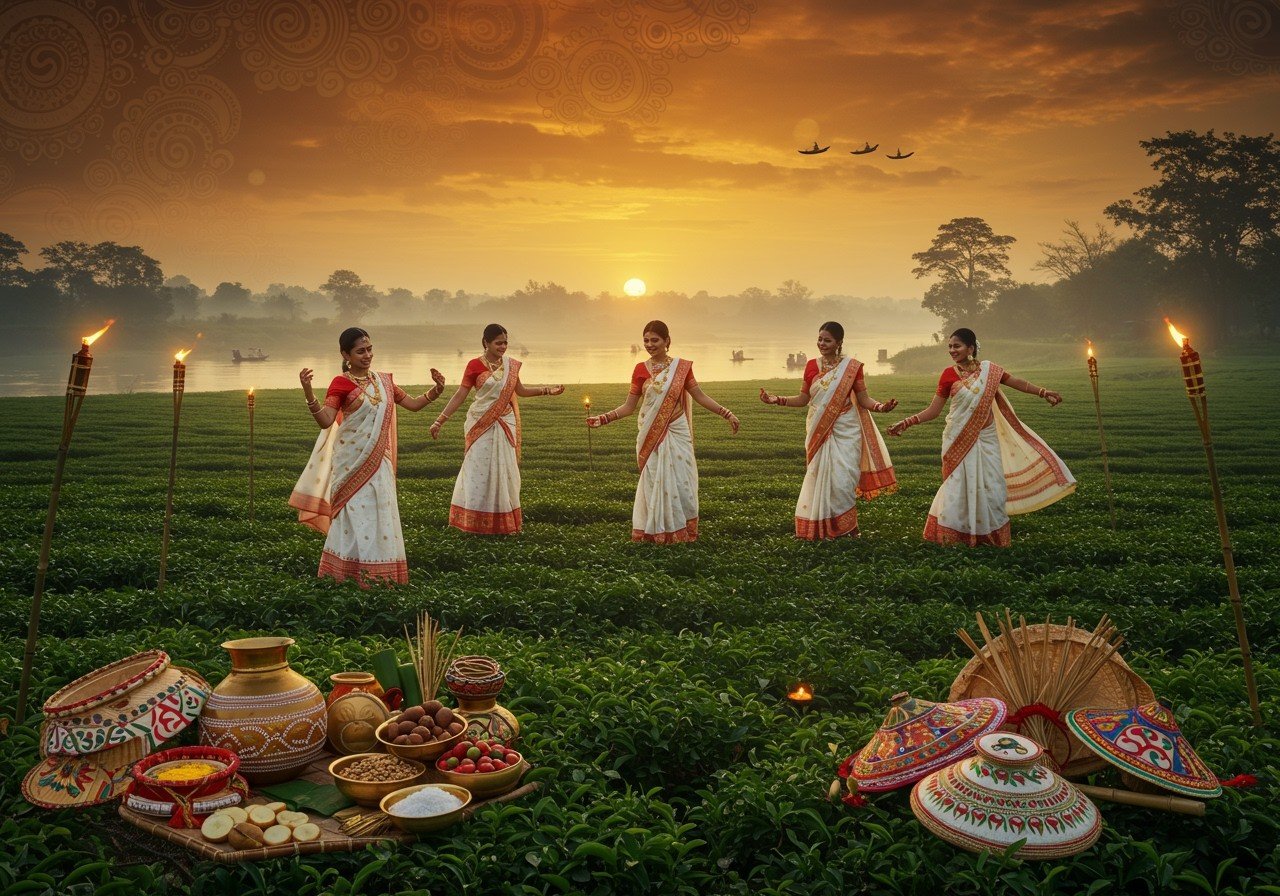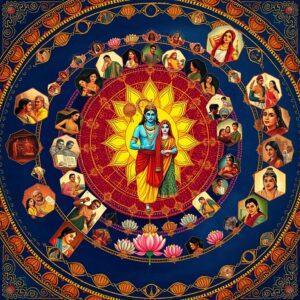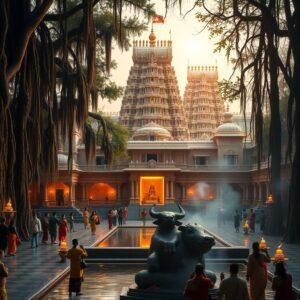
Assam, a northeastern state in India, boasts a rich cultural tapestry woven with vibrant festivals and unique traditions. Known for its lush landscapes and diverse communities, Assam presents a captivating blend of ancient rituals and contemporary celebrations. This article delves into the heart of Assamese culture, exploring its most significant festivals, time-honored practices, and culinary treasures, offering a comprehensive understanding of the region’s captivating heritage.
Bihu Festival: A Celebration of Life and Seasons
The Bihu festival stands as a cornerstone of Assamese culture, a joyous celebration of the Assamese New Year and agricultural prosperity. Deeply intertwined with the agrarian cycle, Bihu is observed three times a year, each marking a distinct phase: Rongali Bihu, Kongali Bihu, and Bhogali Bihu.
- Rongali or Bohag Bihu (Mid-April): Heralding spring and the sowing season, Rongali Bihu is a time of exuberant festivities. Traditional songs, known as Bihu Geet, fill the air, accompanied by the rhythmic steps of the Bihu Naas dance. People dress in their finest traditional attire, with women adorning the elegant Mekhela Chador and men donning the Dhoti. This joyous festival marks the beginning of the Assamese New Year.
- Kongali Bihu (October): Observed during the less prosperous post-sowing period, Kongali Bihu is a quieter, more contemplative festival. The focus shifts towards prayers and simpler celebrations, reflecting a time of hope and anticipation for a bountiful harvest. Traditional lamps are lit, and prayers are offered for a successful harvest.
- Bhogali Bihu (January): Marking the end of the harvest season, Bhogali Bihu is a time of feasting and community bonding. Known as the festival of feasting, it features communal feasts, bonfires (Meji), and traditional games. The joyous atmosphere strengthens community ties and celebrates the abundance of the harvest.
Throughout these Bihu celebrations, special delicacies such as Pitha (rice cakes) and Laru (coconut sweets) are prepared and shared, adding a sweet touch to the festivities.
Ambubachi Mela: A Spiritual Journey
Ambubachi Mela, a significant spiritual festival, takes place at the revered Kamakhya Temple in Guwahati. This unique festival is associated with the fertility cult and the worship of Goddess Kamakhya.
- Temple Rituals: During the festival, the temple closes its doors for three days, symbolizing the Goddess’s annual menstrual cycle. The reopening of the temple is marked by grand ceremonies and rituals, attracting devotees from far and wide.
- Pilgrims and Sadhus: Devotees and Sadhus from across India converge at the Kamakhya Temple during Ambubachi Mela, creating a vibrant and spiritual atmosphere. The gathering represents a unique blend of faith, tradition, and cultural exchange.
- Cultural Importance: Ambubachi Mela plays a vital role in promoting Assam’s spiritual heritage and fostering communal harmony. The festival provides a platform for cultural exchange and strengthens the bonds within the community.
Traditional crafts and souvenirs, showcasing the rich artistry of Assam, are available during the festival, offering visitors a chance to take home a piece of Assamese culture.
Assamese Cuisine: A Culinary Tapestry
Assamese cuisine reflects the state’s diverse cultural influences and abundant natural resources. Key dishes like Assam Laksa, Khar, and Masor Tenga tantalize the taste buds with their unique flavors.
- Rice and Fish: Staples of the Assamese diet, rice and fish highlight the region’s agricultural landscape and culinary traditions. Fish, prepared in various ways, is a central part of many meals.
- Traditional Cooking Techniques: Assamese cuisine employs unique cooking methods, including bamboo steaming and banana leaf wrapping, imparting distinct flavors and aromas to the dishes. These techniques preserve the natural flavors and add a unique dimension to the culinary experience.
- Local Ingredients: From pungent mustard oil to tender bamboo shoots and exotic herbs, Assamese cuisine incorporates a wide array of local ingredients. These ingredients contribute to the distinctive flavors and textures of Assamese dishes.
Poojn.in: Your Gateway to Assamese Culture
Poojn.in makes it effortless to obtain authentic Assamese ritual items for festivals and cultural celebrations. We offer a curated selection of essential items, including:
- Traditional Mundi Sindur Dibbi: This beautifully crafted wooden container is perfect for storing sindur (vermilion), an essential item in many Assamese rituals and ceremonies. Its intricate design adds a touch of tradition to any occasion.
- Swarna Champa Agarbatti: Create a serene atmosphere with these fragrant incense sticks, ideal for prayers, meditation, and festive occasions. The captivating aroma adds a spiritual touch to any setting.
- Red Sandalwood Mala: This traditional mala, made from red sandalwood beads, is perfect for prayer and meditation. Its natural fragrance and smooth texture enhance your spiritual practice.
Explore our complete collection of authentic Assamese ritual items at Poojn.in and bring the richness of Assamese culture into your home.
Conclusion: A Tapestry of Traditions
Assam’s rich cultural heritage stands as a testament to the enduring power of tradition. From the joyous Bihu celebrations to the spiritual depth of Ambubachi Mela, Assam invites you to explore its vibrant culture and experience the warmth of its people. Poojn.in is proud to support the preservation of Assamese traditions by providing access to authentic ritual items and cultural goods.


